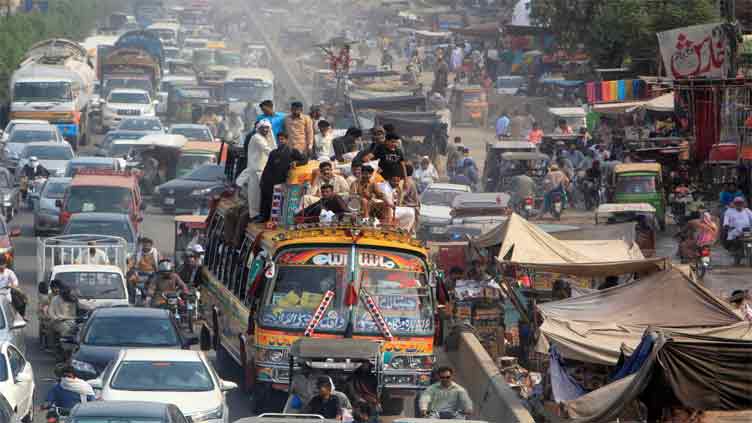pakistan
South Asia – the global pollution hotspot: Pakistan, India see fourfold increase in vehicles since 2000
Marked in economic development, population growth leading to increased energy, fossil fuel demand

pakistan
NA Secretariat accepts inclusion of independent members in SIC
NA Secretariat accepts inclusion of independent members in SIC
pakistan
Pakistan urges UN to reconsider Palestine’s full membership bid amid US veto
Pakistan urges UN to reconsider Palestine’s full membership bid amid US veto
pakistan
PM Shehbaz saddened by passing of UAE’s Sheikh Tahnoun bin Mohamed
PM Shehbaz saddened by passing of UAE’s Sheikh Tahnoun bin Mohamed
-

 Sports3 months ago
Sports3 months agoSon and Bissouma ready for Spurs game with Brighton
-

 Sports3 months ago
Sports3 months agoSinisterra signs long-term deal with Bournemouth
-

 Fashion2 months ago
Fashion2 months agoGiorgio Armani catwalk blooms with florals at Milan Fashion Week
-

 pakistan3 months ago
pakistan3 months agoECP convenes emergency meeting today
-

 pakistan3 months ago
pakistan3 months agoECP rejects Salman Akram’s plea for PTI affiliation
-

 World2 months ago
World2 months agoTaiwan ally Tuvalu names Feleti Teo as new prime minister
-

 World2 months ago
World2 months agoTunisia court sentences ex-president Marzouki to 8 years in absentia
-

 Sports2 months ago
Sports2 months agoScaled-back opening ceremony for Paris Olympics to offer 326,000 tickets




















